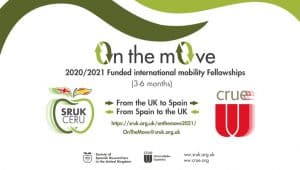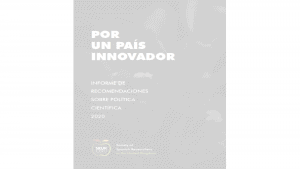The last report of the Royal Academy of Doctors in Spain (last update: July 2016) elaborated on the need to increase the recognition and social projection of the doctoral degree within the public and private sectors, thus decoupling it from its conception as a mere tool for moving up the academic ladder. Ironically, no explicit mention was made about the responsibility of the national scientific system to facilitate this task. On the contrary, that specific system seems to be the one creating an ever-increasing number of obstacles to the wider recognition of this qualification, especially for those who decided to do a PhD abroad.
In my case, after graduating from the University of Manchester (United Kingdom) and doing a short postdoc, I decided to return to Spain last year to join Bioncotech Therapeutics. Given my interest in academia (yes, industry and academy can indeed co-exist), I started to flip through the requirements needed for university teaching back home (ANECA). Despite being aware of my budding scientific career, I even dared to apply for a permanent staff position at one of the Spanish Public Research Institutions (OPIS). Nevertheless, I came across an unexpected obstacle: in Spain, I was not officially a doctor.
According to the Royal Decree 967/2014 of November 21st [1], anyone holding a foreign PhD degree needs to undergo an “equivalence process” to have their doctoral degree in line with the official academic level of Doctor contemplated by the Spanish Qualifications Framework for Higher Education – even if it was awarded by a University or research institution within the European Union. In fact, Spain seems to be one of the few countries from the European Higher Education Area that does not automatically recognise this degree, as detailed in the EURAXESS portal [2] where the equivalence process is only mentioned for this country. It is not entirely clear, however, which national selection processes one should apply for that purpose. From my own experience, this is not a prerequisite for open calls such as the Torres Quevedo Subprogram, but it is in fact needed for ANECA or if you wanted to apply for a position at one of the OPIS. According to the Ministry of Science, Innovation and Universities; I was excluded from the latter in 2018 because of “not holding a doctoral degree as specified in the call”. In conclusion, returnees can be put at a clear disadvantage when aiming to re-enter the Spanish research system, especially given the scarce open calls for applications and the lengthy nature of the process – it may as well take up to 6 months from the date of application.
What do you need to apply for equivalence?
 First and foremost, a tad bit of patience. As outlined in the Royal Decree [1], this process is handled by Spanish Universities at the request of an individual who should fill out an application form addressed to the Rector of a University offering a similar PhD program. Once the form is completed with the details about the applicant and the information about the foreign PhD program, it needs to be sent together with several documents: ID, photocopy of the foreign PhD title, PhD certificate issued by the home University (official translation might be required), a full copy of the doctoral thesis, and a thesis summary and a recent copy of the applicant’s CV (both in Spanish or one of the co-official languages, if applicable). As expected, the process requires the applicant to pay for the equivalence fees, which differ across the Autonomous Regions in Spain. For instance, according to the official decrees of prices published by the individual Spanish Autonomous Regions, in Andalusia, Cantabria, the Valencian Community, Galicia, and Madrid; the process would set you back around 120-160 euros, in comparison to 220-240 euros in Aragon, the Canary Islands, Catalonia, and the Basque Country. Once all documents have been submitted, the resolution period can take up to 6 months, after which the Rector will either accept or reject the application. The Rector’s decision can be appealed during the next 3 months. If the application is then dismissed, the above Royal Decree contemplates the possibility of resubmitting a new application in a different Spanish University, which will require the individual to pay – again – additional equivalence fees while following another time the whole procedure detailed above.
First and foremost, a tad bit of patience. As outlined in the Royal Decree [1], this process is handled by Spanish Universities at the request of an individual who should fill out an application form addressed to the Rector of a University offering a similar PhD program. Once the form is completed with the details about the applicant and the information about the foreign PhD program, it needs to be sent together with several documents: ID, photocopy of the foreign PhD title, PhD certificate issued by the home University (official translation might be required), a full copy of the doctoral thesis, and a thesis summary and a recent copy of the applicant’s CV (both in Spanish or one of the co-official languages, if applicable). As expected, the process requires the applicant to pay for the equivalence fees, which differ across the Autonomous Regions in Spain. For instance, according to the official decrees of prices published by the individual Spanish Autonomous Regions, in Andalusia, Cantabria, the Valencian Community, Galicia, and Madrid; the process would set you back around 120-160 euros, in comparison to 220-240 euros in Aragon, the Canary Islands, Catalonia, and the Basque Country. Once all documents have been submitted, the resolution period can take up to 6 months, after which the Rector will either accept or reject the application. The Rector’s decision can be appealed during the next 3 months. If the application is then dismissed, the above Royal Decree contemplates the possibility of resubmitting a new application in a different Spanish University, which will require the individual to pay – again – additional equivalence fees while following another time the whole procedure detailed above.
Tips for an “express equivalence”
I am afraid all these steps will not always guarantee a successful application. As a matter of fact, my own application was initially denied, and I had to appeal the decision by writing a 4-page supporting letter with extra documentation before getting the green light three months later. Nevertheless, the below tips might be useful for all those who wish to achieve their equivalence in a first row:
- Choose the right PhD program: it may seem tempting to pick a local University for the sake of proximity. Nevertheless, it is worth ensuring you choose the correct PhD program by looking not only at its title but, more importantly, at its full description and the research areas it contemplates. It may be even worth applying to a distant University, which might save you time and money in the long run (bear in mind that, theoretically, you could go through a second or third application round).
- ‘TESEO’ [3] is your friend: use this Spanish database to go through the most recent published theses for the PhD program you want to equate your foreign PhD to, as well as publications derived therefrom. If not a complete match, step back and make sure you find a better fit.
- Get hold of an official letter from your home institution: one of the requirements to complete the application is to provide an overall mark for your PhD. In countries such as the United Kingdom, there is no such thing other than ‘passed’ or ‘failed’. Therefore, it is worth attaching an official letter outlining the existing qualification system in the foreign country of origin. Likewise, if your PhD program is an unconventional one in the eyes of the Spanish system, i.e., it is part of a Doctoral Training Centre (DTC), where multiple lines of research co-exist or spanning entrepreneurship modules; my advice is that you ask for a supporting letter from your institution as an official confirmation stating that you got your PhD.
All in all, another obstacle to attract and get talented scientists back home
The existence of the equivalence process to the Spanish academic level of Doctor is an additional obstacle (and, in many cases, a totally unexpected one) for those who consider returning to Spain. This system discriminates and puts those who decided to study their PhD abroad in a clear disadvantage to return to the Spanish system. Similarly, the same scenario holds for brilliant and talented researchers working abroad wanting to return, who typically come from leading research centres and Universities worldwide with technology transfer systems better aligned with a knowledge-based economy. This equivalence system is obsolete, at least at the European level, and should be abolished as soon as possible to make the Spanish scientific system a more attractive one for both expatriates and foreign talent.
* * *
By Julio M. Rios de la Rosa, Commercialisation Associate (Research Tools & Consultancy), Cambridge Enterprise Limited (University of Cambridge).
More information:




